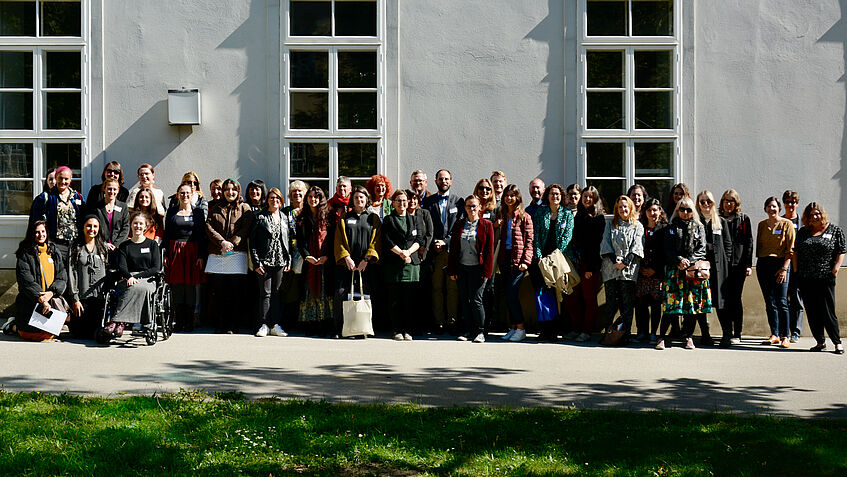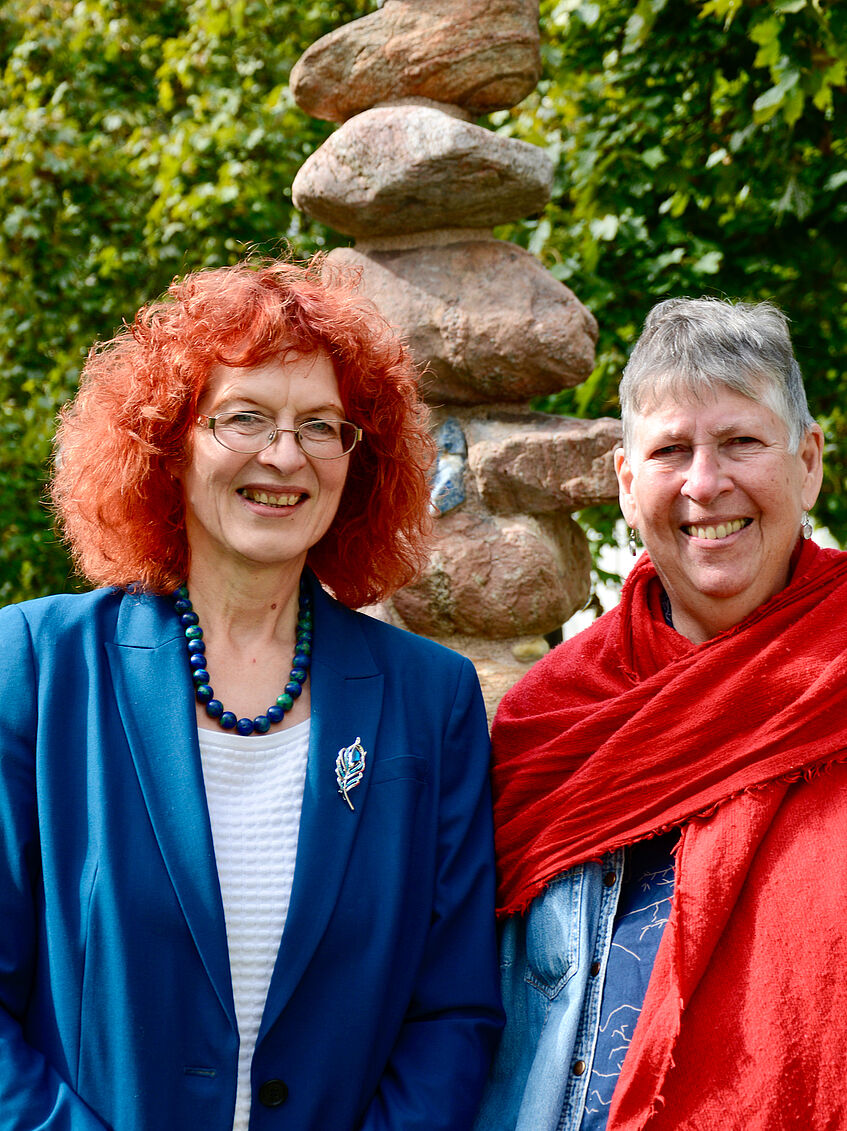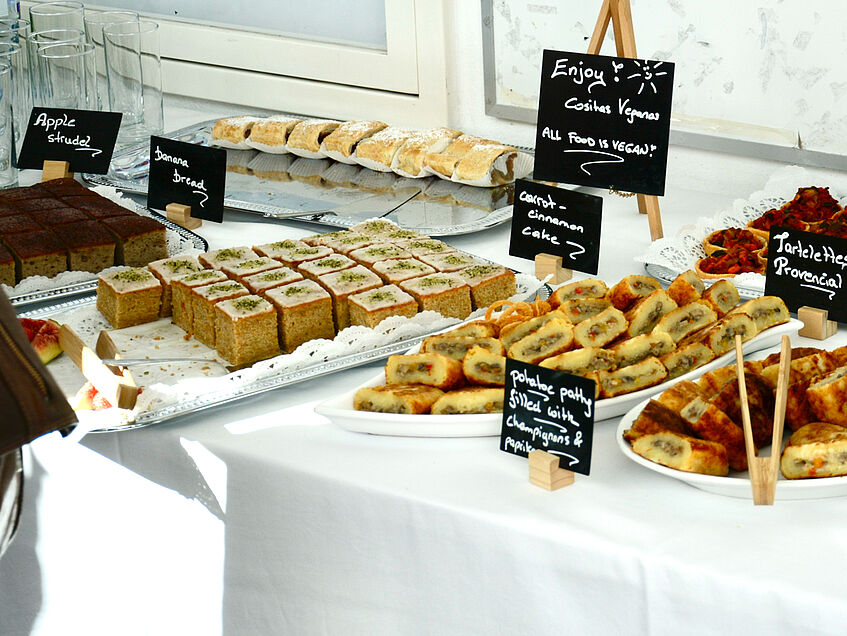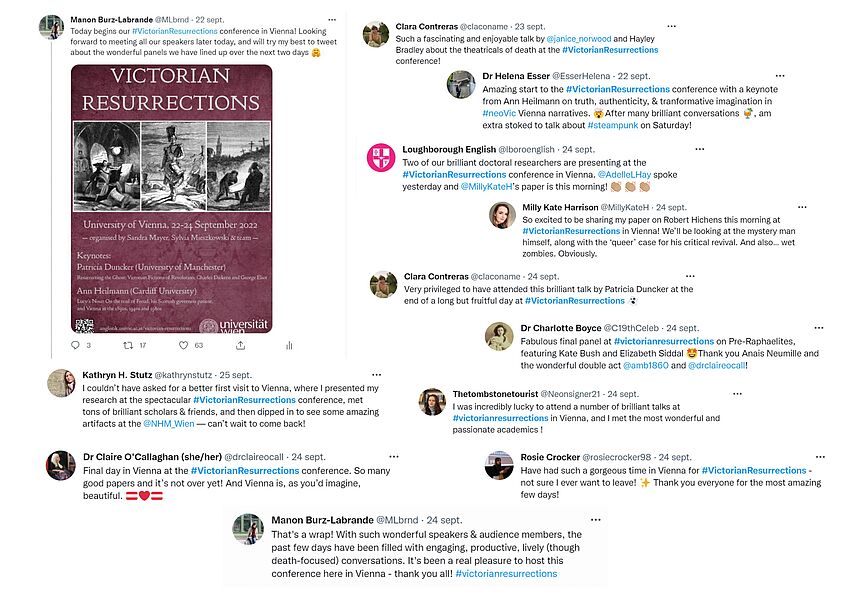Conference report: Victorian Resurrections
22-24 September 2022, University of Vienna

Participants of the Victorian Resurrections Conference - Photo: Harald Freidl
From Thursday 22nd to Saturday 24th September 2022, the international conference Victorian Resurrections welcomed over fifty literary and cultural studies scholars from all around the world at the Department of English and American Studies to discuss death and resurrection in Victorian literature and culture, as well as in Neo-Victorian adaptations and reimaginations.

Keynote Speakers Ann Heilmann and Patricia Duncker - Photo: Harald Freidl
The conference, organised by Sandra Mayer, Sylvia Mieszkowski, Manon Burz-Labrande, Harald Freidl, and Ulrike Zillinger, aimed to investigate the connections between the Victorian era and the idea of resurrection(s), which, whether understood literally or figuratively, encompasses a broad range of literary, cultural, and material practices. In this spirit, we chose to use the Doves Type for our poster, a Victorian typeface once lost in the Thames and recently recovered and resurrected digitally.
The event opened with a keynote by Ann Heilmann (University of Cardiff) about Cecily Mackworth's multi-layered novel Lucy's Nose (1992), titled "Lucy's Nose: On the Trail of Freud, his Scottish governess patient, and Vienna in the 1890s, 1940s and 1980s". Her lecture connected well to our city and its history, and Heilmann posed questions that resonated through all panels and papers of the following days: How do literature, art and culture, whether Victorian or Neo-Victorian, deal with death and the unknown? What constitutes an act of resurrection, what purpose does it fulfil and what are its implications? And what happens when the past – or the dead – returns, either literally, in trauma, or in fiction?
The manifold papers presented on Friday and Saturday at the Department of English and American Studies approached these questions from a variety of perspectives. Across seventeen panels, speakers from fourteen countries engaged with some classics and other, neglected texts of Victorian fiction, as well as nineteenth-century cultural and religious practices, but also Neo-Victorian fiction, film, television, music, video games and graphic novels.
Naturally (or supernaturally), the conference teemed with ghosts, vampires, and other revenants. However, more concrete aspects of dying and the cultural trimmings that can accompany it were also central to the discussion; topics that were discussed included burial rites, commemorative culture, body snatching, and taxidermy. Importantly, not all resurrections presented during this conference were death-focused: a number of speakers analysed instances of re-enactment of traditions and of remembrance of past cultures, art movements, or historical figures. Finally, some speakers also addressed the question of resurrection, not just in, but of Victorian literature, through rediscovery and re-evaluation or re-interpretation and adaptation – thus elucidating the continuing interest in and engagement with the culture and art of the long nineteenth century and its obsession with the (non-)finality of death. The second keynote lecture, given on Friday evening by novelist and academic Patricia Duncker (University of Manchester) and titled "Resurrecting the Ghost: Victorian Fictions of Revolution, Charles Dickens and George Eliot", focused on the political implications of death, most drastically represented by the guillotine, and the cultural relevance of ethics in fiction.

Catering by Cositas Veganas - Photo: Harald Freidl
The many lively discussions prompted by the rich academic programme were continued during the coffee breaks but also at the conference warming on Thursday evening, at Weinbar Bolena, as well as during Friday's conference dinner, at Stadtheuriger Gigerl. The Twitter hashtag #VictorianResurrections, created for this gathering, helped continue the conversation online – between our speakers, but also among scholars across the globe who could not be present and were provided glimpses of the conference.
The conference programme can be found here.
Harald Freidl

Twitter Collage by Manon Burz-Labrande
